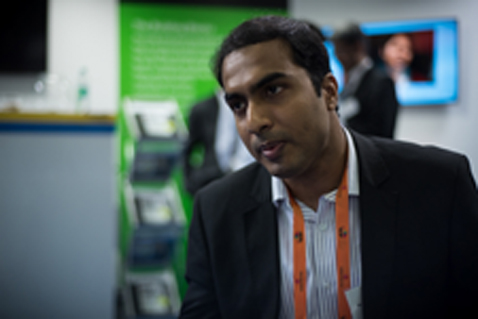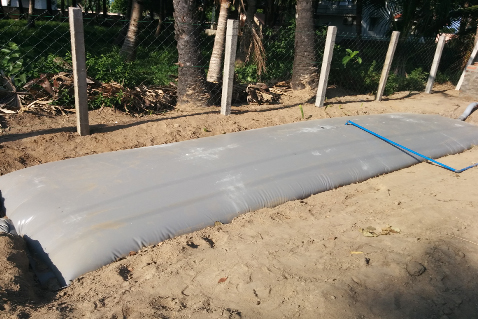The win-win case of Waste to Energy
FOV Biogas’ small, easy to move, cost-effective plants are making a change in the way waste-to-energy is being understood in the Indian context. Director Joseph Vimal Arulappan talks about the strategic decisions FOV has made as it enters India.
Every year over 40 million tonnes of waste is generated in India. It should not come as a surprise that waste to energy processes are a win-win scenario. However it has taken some time to capitalise on India’s potential in this area.
What have been FOV Biogas’ steps to enter the Indian market?
We first established our local presence, with our office in Chennai. It’s important to have a local presence for foreign companies in India. It’s important to be closer to the customer and for providing them continuous service and support.
We have tried to make our product cost effective by not compromising on the quality. This gives us an edge over our competitors. Since the 1960s, FOV Fabrics AB, Sweden has been a reputed hi-tech textile company supplying textiles for army applications, airbag fabrics, almelon textiles, smart textiles, concrete reinforcement textiles, etc. We produce more than 15 million m2 textiles every year, shipped all over the world. Over 7 years of research and development we have been rethinking biogas technology. This process has materialized in a new type of advanced fabrics that is especially designed for biogas production, taking into consideration all of the parameters required for reliable, accessible and cost effective biogas production.
Our digesters are made of innovative polymer based fabric material, the system is compact and portable unlike the conventional biogas units which are cemented into the ground. Given the nature of the material it is easy to install, maintain and the digester can be relocated if required.
The minimum size for each unit is 100kgs of organic waste, and the maximum size depends on the quantity of waste that needs to be handled.
We have made 7 installations so far in India; at educational and industrial complexes in Chennai, Bangalore and Mumbai. FOV offers service and maintenance to customers to continuously optimize the gas yield and to achieve optimal performance.
Our fabric is manufactured and delivered directly from our factory in Sweden. The complete system is assembled at Chennai.
The concept of developing energy from waste is not a new one, why do you think FOV has met with such a positive reaction in India?
Our major differentiation is in our product and the applications we use it for. We have a number of unique features, and at the heart of our systems is our proprietary FOV fabric. We use fabric as an alternative to other models that use concrete or steel based biogas digesters. Because our systems are simple and efficient, it makes the product very competitive. Our FOV digesters are portable, and this allows for easy installation at any location. All these attributes together make the product one of a kind.
Many of the new companies coming into India have stressed on the need for a pilot plant, to build confidence and proof of concept. Was this the case with FOV’s product? If not, why not?
We installed our first pilot back in October 2014. This helped us to showcase our proof of concept and our working digester to our potential customers. We have 7 installations in India till date. We also have several in the pipeline during the coming months.
Have all of FOV’s current installations been procured by private entities? Would there be an interest to extend the product to the public sector, given this is a huge problem the county’s municipalities have to work with as well?
We wanted to start with private entities since it’s much easier in India to work with private players. The opportunities within the private sector are good and projects take off faster. We also plan to work with public sector in the future. But we would like to first establish ourselves in the private sector first.
What are FOV’s next steps?
The response from South India has been very positive. With this we plan to extend across India within the next two years. The FOV technology is developed specially for tropical countries. We already have our presence in Indonesia and Vietnam.

